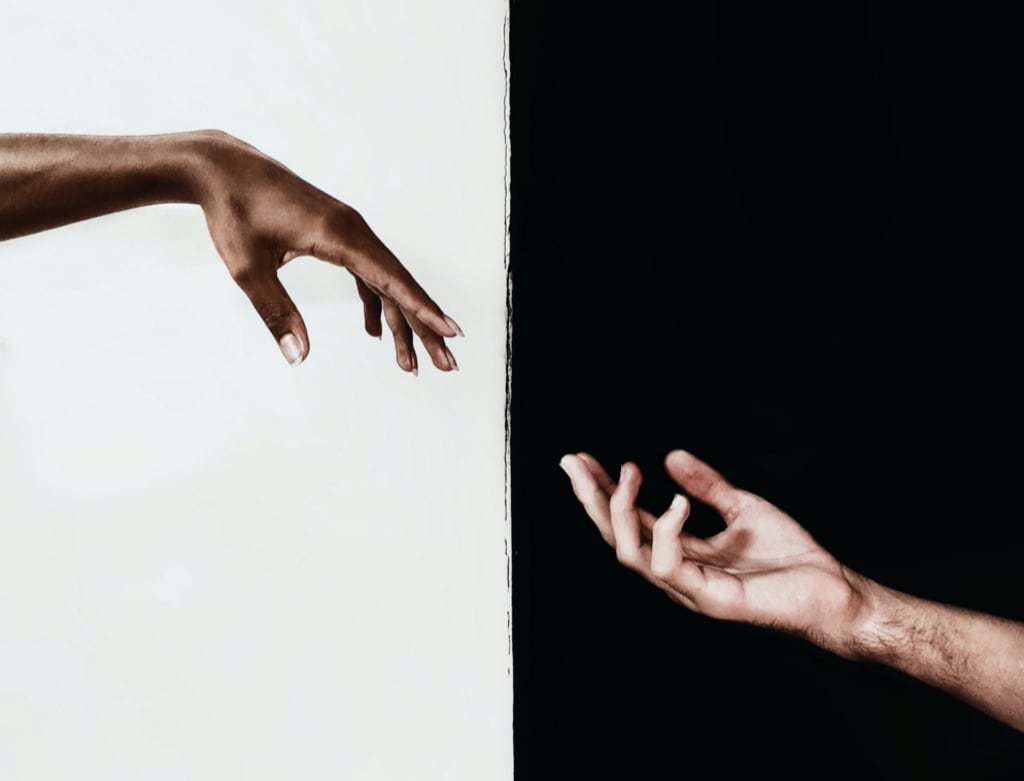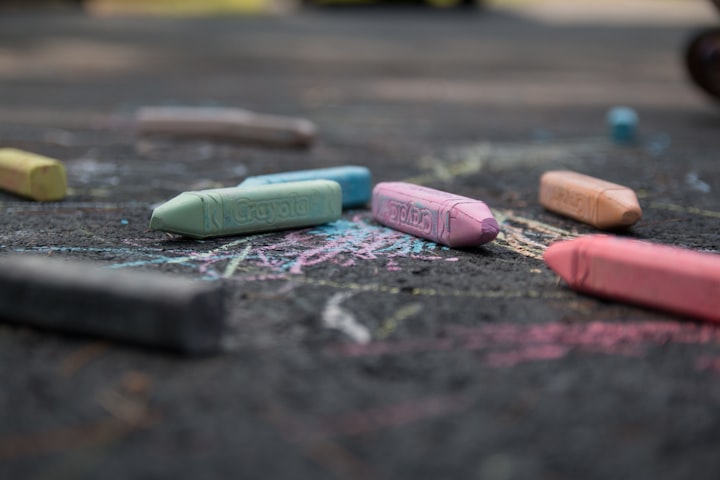Hands
When she opened her eyes, he was gone.

What struck her most about him were his hands. They were long and lanky, like his body. Even more remarkable than their shape was the way he used them. When they first met, he shook her hands boldly and directly, as if it were a perfectly normal thing to do and not a violation of the law in the Islamic Republic of Iran. Taken aback, she forgot to respond. Her hand hung limply in his palm, until he dislodged it.
Just the day prior, she had read about a poet who, after returning from abroad, had been arrested for shaking a woman’s hand. She wanted to warn him: You shouldn’t do that. You might end up in jail. But he must have known what he was doing, she reasoned, and who was she to tell him how to behave in his own country?
His hands didn’t fit anywhere, not in his pockets, or at his sides. They dangled oddly from his arms, like an expert swimmer more at home in a lake than on dry land. The lines on his palms were long, stretching from his wrist to his index fingers. If a fortune-teller — like the one she had consulted in Hafez’s tomb while visiting Shiraz — had been asked to read his palms she would have predicted for him a long life, a fulfilling marriage and many children. His hands were like an autonomous body. She imagined them keeping her warm at night, soothing the aches in her back, providing a resting ground for her lips, caressing her hips.
Before they said goodbye that magical night in Tehran in front of the Golestan Palace, she asked him why he decided to shake her hand. Without answer he waxed lyrical, in a different direction. “I dream of working wonders with my hands,” he said, “I want to make magic potions and aphrodisiacs based on ancient Iranian traditions.” Although it was not an answer, his words opened a new mysterious horizon onto his soul. She wanted to know more.
She touched his hands again in Tbilisi, a city they had arranged to rendezvous in order to get to know each other better. Across the border, where it was safe. Christian Iranians and Bahais walked the streets of Tbilisi openly, freely proclaiming their faith. The walls of certain homes were covered with signs in Farsi. There in the Georgian Republic, they could say things — about each other, to each other, about their lives — that could not be said so long as the morality police of the Islamic Republic was watching them. Closed circuit cameras and bugs in hotels. They could hold hands publicly, without breaking the law.
Funny, she thought, how law interacts with morality, indeed with honesty: what is licit in one country suddenly becomes an offense when the jurisdiction shifts. As if there were no universal or transcendent ethics. As if, even in the Islamic Republic, everything were just a game of power and politics. Strange how acts of affection, expressions of love, can made into crimes.
Her hands pressed hard on his body. Certain parts of him yielded in certain ways, though not every crevice and not in every way. He was nervous and gently, tenderly, resistant. Her hands traced a continual arc on his back while they worked together to etch each other’s body in their memory, to stimulate the words that flowed between them like a fresh shower on a hot summer day, summoning and cementing memory, not just for that instant, but for eternity.
She saw his hands again in Abu Dhabi, but this time it was different. This time it was she who was cautious. She wanted to see what his hands would do with her body — how he would touch her and when and why — when unprompted. Nearly all of their contact had been initiated by her hands in Tbilisi. This time, she decided, she would let his fingers determine their movements, would wait for his nails to dig into her skin, and his thumbs to press into the small of her back. She imagined her spine curve, bending into his hands. As she waited for him to touch her, the hours passing relentlessly with him making no movements, giving no sign of the love growing between them, she remembered when he shook her hands unbidden in full public view in violation of the law, in Tehran. Looking back on that moment, she wondered whether she had misread the target of his apparent defiance. Was it perhaps a performance, not for her sake, but for the state, an act of civil disobedience that dared the government to punish him?
Hospitality demands that we shake the hands of every guest, his handshake seemed to say in retrospect, as he failed to touch her. We must show our respect to every visitor! Or was she demeaning that miraculous moment? What force of gravity had caused him to extend his hand to her then, only to withdraw it when they were finally alone?
She had never seen his hands so reticent as they were in Abu Dhabi. Neither in Tehran nor Tbilisi were they like that: tentative, passive, even cold. It was as if they belonged in another place, on another body, or in another galaxy. She decided she would wait until they said goodbye to question why his hands appeared to be tied down by a psychic force she could not fathom, why they were so hesitant to touch her body. And then, in the airport, there was a crush of people, as there always is. They were late. The lines extended out into the arrivals hall as the boarding time approached. 5:30. 5:35. 5:40. The day was just beginning, yet it felt like the end of time.
All passengers for Tehran please approach gate 6D, the intercom blared. The moment to speak had passed — she had to touch his hands. She reached out to find them, but they were tucked deep inside his pockets, too deep for her to reach.
The deferral of discussion, along with his unreachable hands that could have brought words to his lips, prevented her from asking the question that was burning on her lips: when would their hands meet again? He asked her to watch his luggage while he went to the bathroom. When he returned, he had to rush to catch his flight. There was no time to say goodbye, no time to repeat the gestures that brought them together in Tehran and Tbilisi, no time for her to take the measure of his hands, to press his knuckles on her cheek, to lift his fingertips to her lips and to tell him how much she wanted his hands — but actually the entirety of his body and of his soul — in her life. Perhaps, she decided, the crush of people was the best way of deferring this impossible speech. Maybe silence was the preferred option. Not knowing what to say in the little time remaining to them, she closed her eyes and imagined his fingers stroking her hair. When she opened her eyes, he was gone.
About the Creator
Rebecca Ruth Gould
I am author of the award-winning book Writers and Rebels: The Literature of Insurgency in the Caucasus (Yale University Press, 2016). My Wikipedia page.
Subscribe to my YouTube Channel Poetry & Protest. ⬆️






Comments
There are no comments for this story
Be the first to respond and start the conversation.